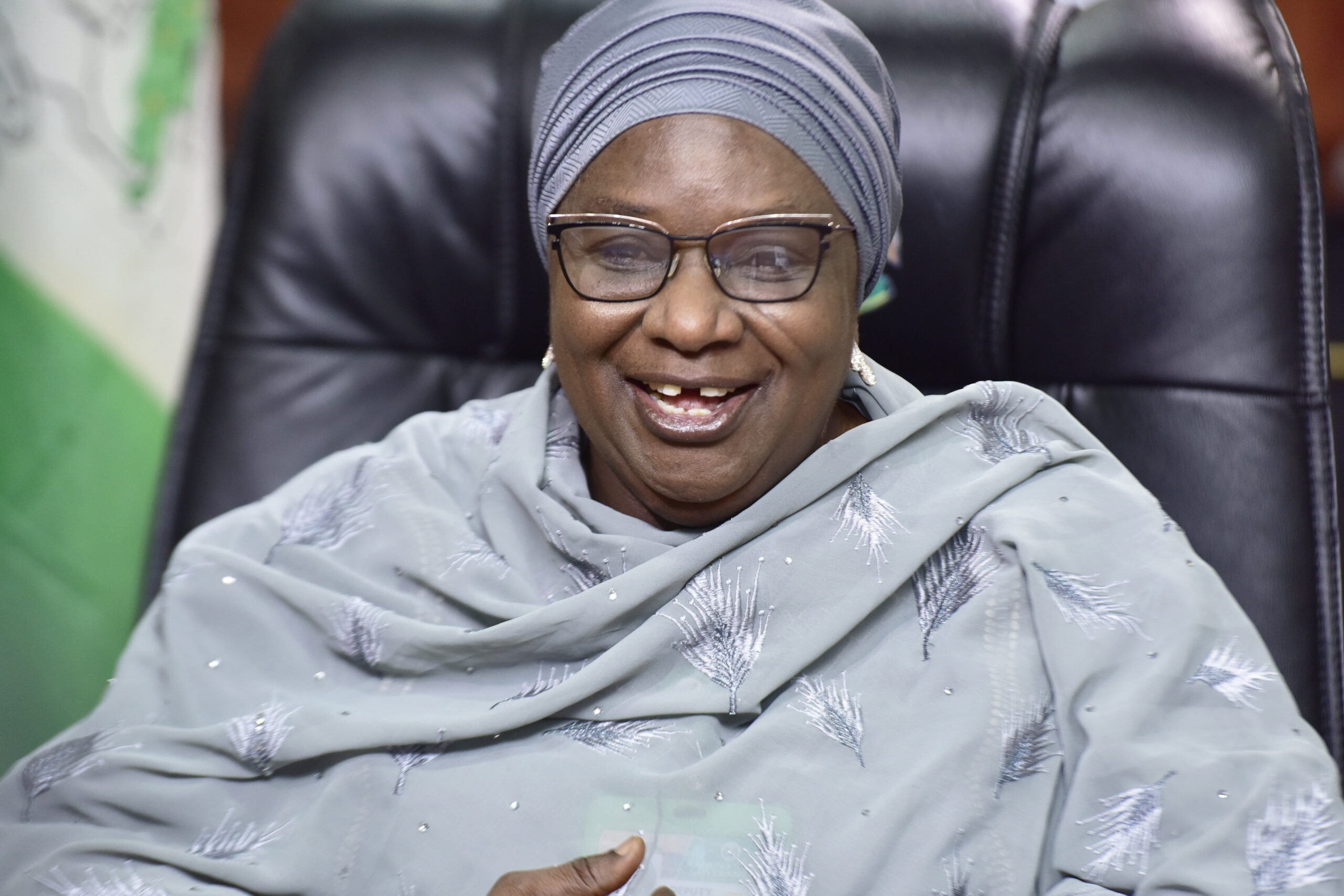Kaduna signs pact with UNICEF to return 200,000 out of school children to classroom
Kaduna State Government on Friday signed aC ontribution Agreement between UNICEF and its Reaching Out-of-School Children Project with the aim of reintegrating 200,000 out of school children back to the classroom. Speaking at the signing ceremony, the State Deputy Governor, Dr. Hadiza Sabuwa Balarabe, who represented Governor Uba Sani, said, the Reaching Out-of-School Children Project […]

Kaduna State Deputy Governor, Dr Hadiza Sabuwa Balarabe
Kaduna State Government on Friday signed aC ontribution Agreement between UNICEF and its Reaching Out-of-School Children Project with the aim of reintegrating 200,000 out of school children back to the classroom.
Speaking at the signing ceremony, the State Deputy Governor, Dr. Hadiza Sabuwa Balarabe, who represented Governor Uba Sani, said, the Reaching Out-of-School Children Project is designed to address the high number of out-of-school children, which she said was one of the most pressing challenges facing Kaduna State.
She noted with dismay that, currently, many children, particularly girls, children with disabilities, and adolescents, are excluded from educational opportunities, which the project aims to reverse the trend and bring about transformative change.
According to the Deputy Governor, “I am delighted to be here today to witness and participate in this significant milestone – the signing of the Contribution Agreement between UNICEF and the Reaching Out-of-School Children Project in Kaduna State. This partnership is a critical step in our collective journey towards ensuring that every child in Kaduna State has access to quality education, regardless of their circumstances.
“The Reaching Out-of-School Children Project is aligned with our Kaduna State Education Sector Strategic Plan (2019-2029) and reflects our commitment to achieving the Sustainable Development Goal 4, which calls for inclusive and equitable quality education for all.
“The project focuses on creating access, enhancing the quality of teaching and learning, improving school infrastructure, and strengthening the systems that support the education sector.
“Allow me to highlight the key objectives of the project: 1. Equitable Access and Participation: We are committed to ensuring that every child, particularly out-of-school children and children with disabilities, have access to quality education. This project will help us increase enrolment, participation, and completion rates. 2. Effective Teaching and Learning: By improving the quality of teaching in targeted primary schools and learning centres, we aim to provide our children with the skills and knowledge they need to succeed.
“The beneficiaries of this project are both direct and far-reaching. We anticipate that over 200,000 out-of-school children will be reintegrated into the education system. Additionally, 1,273,222 primary school pupils will benefit from improved school facilities and learning materials, while 36,233 stakeholders, including teachers, head teachers, and local education authorities, will benefit from training and capacity development.
“I would like to extend my sincere appreciation to UNICEF, our trusted partner, for their commitment and support in helping us achieve these goals. UNICEF’s role in designing and implementing the systems strengthening component of this project will be crucial, particularly in areas such as budget analysis and tracking, data system strengthening, evidence-based planning, and strengthening school-based management committees (SBMCs).
“These systems will ensure that our resources are used effectively and transparently, and that we continue to monitor and improve the performance of our education sector.
“This project would not have been possible without the generous funding from the our partners, including the Islamic Development Bank (IsDB), Kuwait Fund for Arab Economic Development (KFAED), Global Partnership for Education (GPE), Education Above All (EAA), and Save the Children International (SCI),” she said.
On her part, the Country Representative of UNICEF, Cristian Munduate said, through the collaboration, 49,000 children have been successfully enrolled into the Nigeria Learning Passport, which is significantly expanding access to quality education for children across Kaduna State.
She said, UNICEF greatly values its strong and productive partnership with Kaduna State government noting that, the State has shown committed to reducing the 74% literacy and numeracy poverty rate through the recent launch of the launch of the Kaduna Literacy and Numeracy Accelerator (KALINA).
“We congratulate your government on the recent signing of the Contribution Agreement between the Islamic Development Bank and UNICEF through the Kaduna State Ministry of Education. This USD 2.5 million, four-year intervention is a part of the Reaching Out-of-School-Children programme, will empower the state by strenghtening its Education Management Information Systems, enabling data-driven budgeting, planning, and performance monitoring for a more resilient education system that keeps children learning and in school.
“UNICEF is immensely proud to be a partner to Kaduna State. The support and access provided by your administration have been crucial as we continue to work together in raising awareness and advancing key initiatives in health, nutrition, child protection, education, and hygiene practices, all for the benefit of the children of Kaduna State.
“As we move forward, we respectfully request your continued support for the implementation of the Kaduna State Model Out-of-School Children (OOSC) intervention work plan, led by the State Safe School Steering Committee under the Ministry of Education. By championing this initiative, we can ensure the safety of schools, address key reasons behind children being out of school, and foster a safer learning environment for all,” Munduate said.
ENDS
